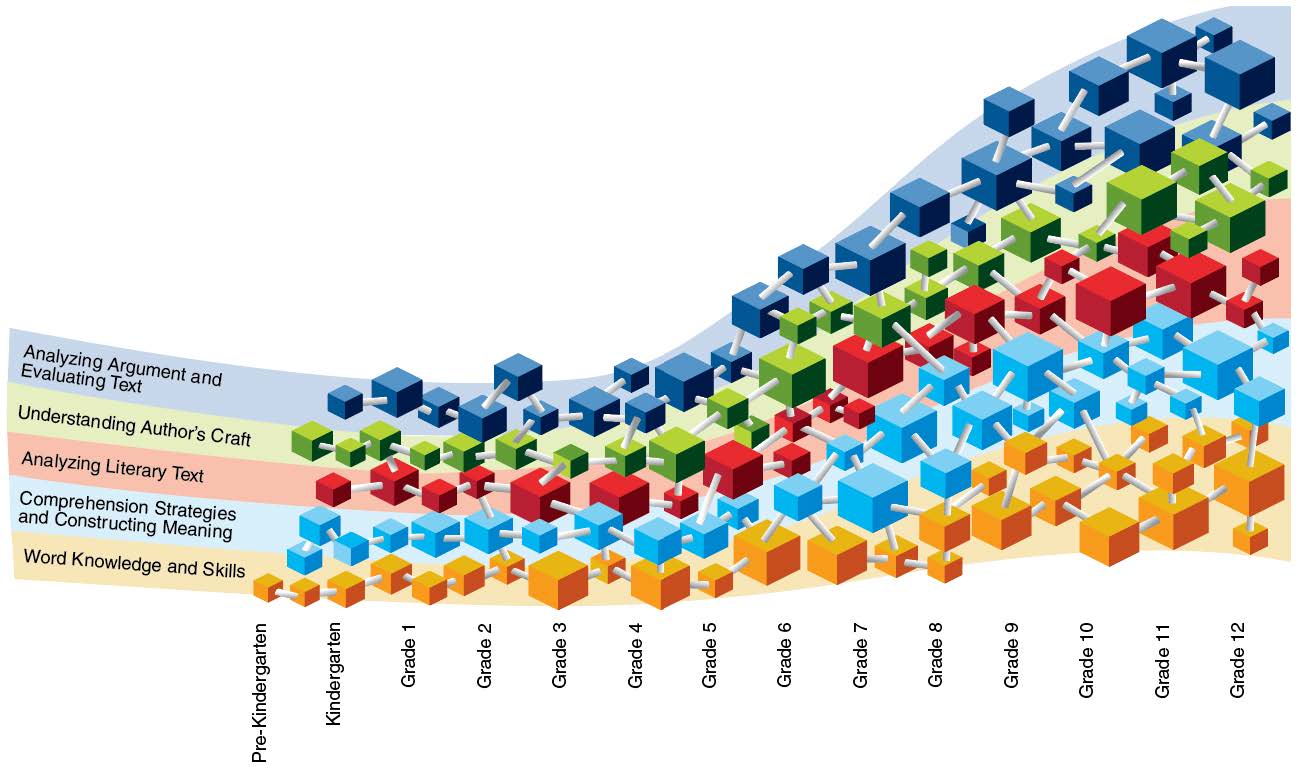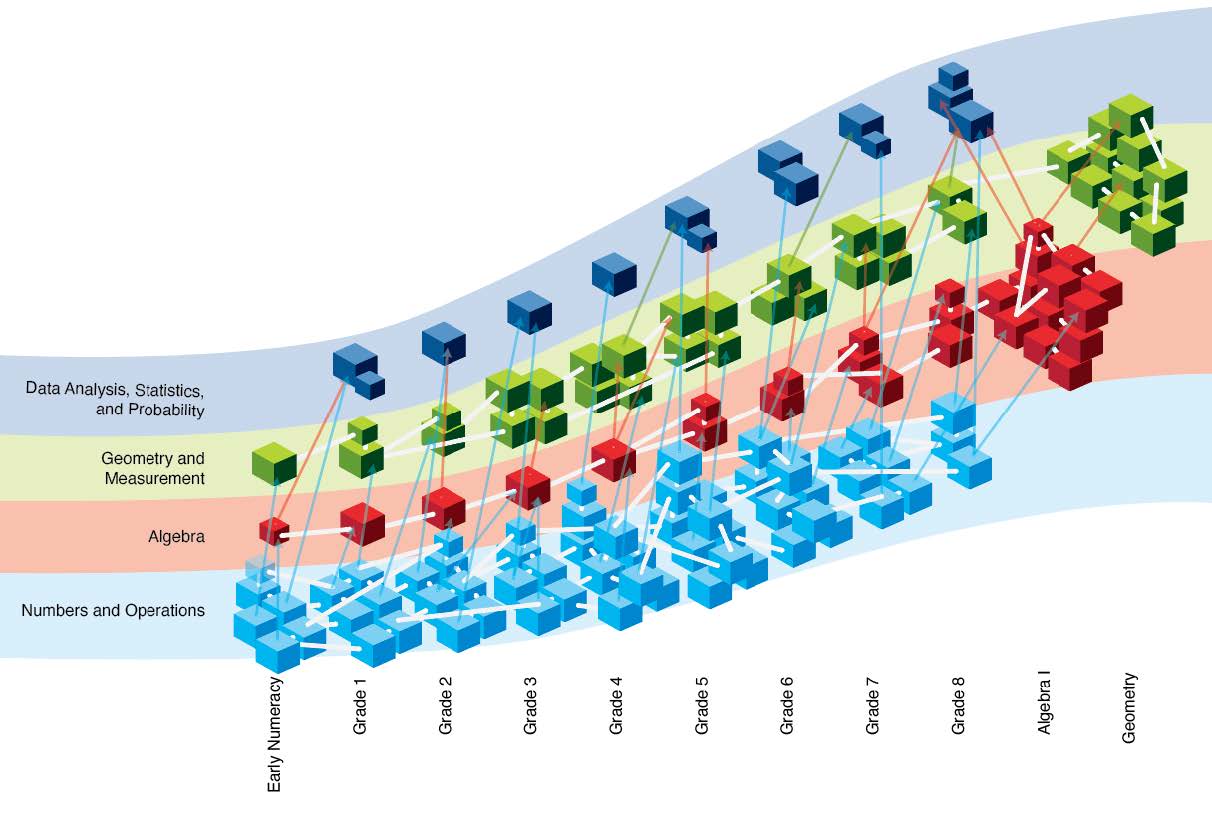
Learning progression for reading

Learning progression for math
Every state has adopted a set of academic content standards that details what a student should know and be able to do at a given grade level. These are the “blueprints” that guide instruction, curriculum, and assessment. However, not all standards are created equal. Some standards are foundational to that grade level and required for learning skills to come; other standards may represent the introduction of ideas to be expanded in later grades or extensions of existing skills that were taught earlier.
Focus Skills stem from more than a decade of Renaissance’s work on developing and validating learning progressions. Learning progressions describe the incremental way students acquire knowledge–from lesser to more sophisticated understanding–within a subject area. Building new knowledge relies on developing understanding of prerequisite skills.
When creating the learning progressions, Renaissance worked with multiple content experts to analyze standards of each state.This began by reviewing the domains of the standards to fully understand their structure and organization. Work then turned to identifying the discrete, teachable skills necessary to support each standard. Finally, specific attention was given to ordering the skills within and across grade levels based on how students would typically be expected to learn them (with successive complexity and sophistication). Not only was the order of skills in our learning progressions based on expert review and classroom experience, it was also validated by data from millions of student responses and more than 5,600 test questions.
Get insights on using Focus Skills to prioritize instruction and address unfinished learning in our recent blog.

Learning progression for reading

Learning progression for math
Experts also identified a subset of the skills as Focus Skills, meaning those which represent the key building blocks for understanding. These skills require a specific level of competency and provide the foundation for next levels of learning. For example, in Algebra I, graphing a linear equation using coordinate axes is a Focus Skill, whereas graphing the solutions to a linear inequality in two variables is not. Graphing a linear equation is a prerequisite for graphing non-linear functions in more advanced courses and is needed to understand mathematical models. Graphing linear inequalities is straightforward and intuitive for a student who has mastered graphing linear equations. Focus Skills are the most essential skills from each domain, and they are also ordered based on how most students would be expected to learn them. Focus Skills are key building blocks within the learning progressions.